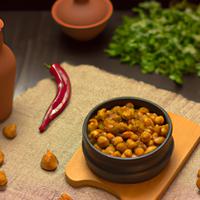
1 serving (100 grams) contains 341 calories, 26.1 grams of protein, 1.5 grams of fat, and 58.3 grams of carbohydrates.

Log this food in SnapCalorie

Nutrition Information
Calories |
682 | ||
|---|---|---|---|
% Daily Value* |
|||
| Total Fat | 3.1 g | 3% | |
| Saturated Fat | 0.6 g | 3% | |
| Polyunsaturated Fat | 0 g | ||
| Cholesterol | 0 mg | 0% | |
| Sodium | 26 mg | 1% | |
| Total Carbohydrates | 116.6 g | 42% | |
| Dietary Fiber | 50 g | 178% | |
| Sugars | 11.4 g | ||
| protein | 52.2 g | 104% | |
| Vitamin D | 0 mcg | 0% | |
| Calcium | 206 mg | 15% | |
| Iron | 13.4 mg | 74% | |
| Potassium | 2124 mg | 45% | |
* Percent Daily Values are based on a 2,000 calorie diet. Your daily values may be higher or lower depending on your calorie needs.
Food Attributes
Source of Calories
About Habas
Habas, commonly known as fava beans, are nutrient-rich legumes originating from the Mediterranean and Middle Eastern regions. These vibrant green beans are packed with plant-based protein, dietary fiber, and essential nutrients like folate, iron, magnesium, and potassium. They are naturally low in fat and cholesterol, making them an excellent addition to heart-healthy diets. Habas are versatile and feature prominently in various cuisines, used in dishes like soups, stews, salads, and dips such as Egypt's beloved ful medames. Their high fiber content can promote digestive health, while the protein supports muscle growth and repair. However, individuals with a condition called G6PD deficiency should avoid fava beans due to potential adverse reactions. Additionally, they can contain complex sugars that some may find harder to digest. Enjoyed in moderation and as part of a balanced diet, habas offer both nutrition and a burst of flavor.



